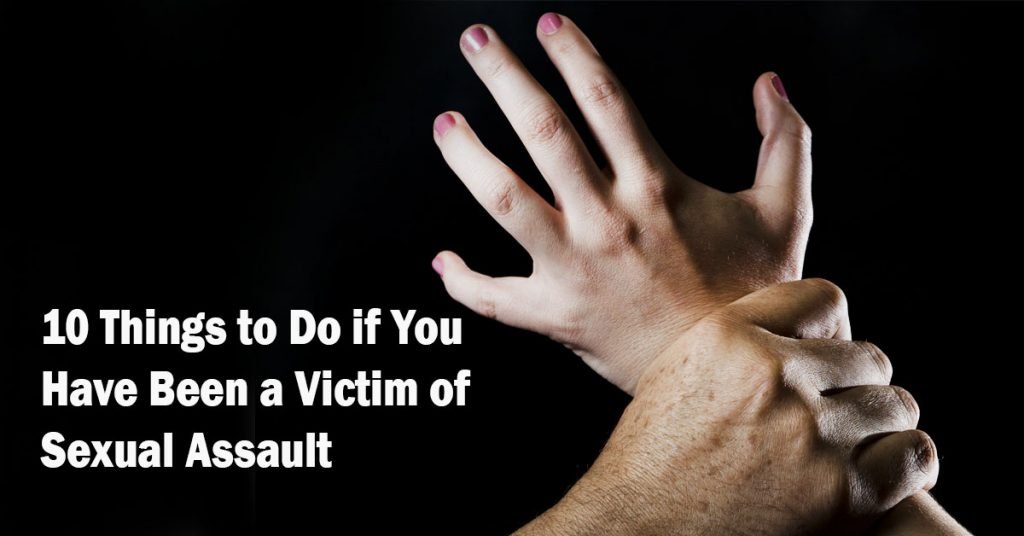Sexual assault is scary. If you’ve been the victim of one of these attacks, know that you have resources. You’re not alone. You can fight back and protect yourself.

1. Get to safety.
Immediately after the assault, get to a safe place. This can include you, your parents’ or a trusted friend’s house. Other places include the hospital, police station or (if you’re a student) campus security.
2. Don’t change or shower.
Don’t change your clothes or shower, as it can destroy evidence. Additionally, consider gathering up any bedsheets or other fabrics that may contain fluids, as they can be used as proof of the event.
3. Reporting the incident.
Hospitals and police stations are both ideal locations to report a sexual assault. Take the items from step #2 to back up your claims. Be prepared – sometimes, reporting can be deeply stressful. The sooner you report, the better.
4. Find support.
Being sexually assaulted is a deeply disturbing event that will burden you for a long time. Don’t carry that burden alone. Let trusted adults know what happened. They will support you and keep you safe.
5. Give yourself a safe space.
You’re going to experience awful feelings months, even years, after your assault. This is normal. Give yourself space where you can ride out these feelings. When you’re in a bad place mentally, remind yourself: “I’m in a good place physically. I am safe. I am loved.”
6. Seek professional counseling.
Seek help from a specialist who can help you heal. Some counselors and therapists are specially trained to help sexual assault victims. They will guide you down a path of healing.
7. Protect yourself from long-term side effects.
The trauma of an assault can cause many mental health problems. Remember: what happened was not your fault. If you begin developing symptoms of PTSD, anxiety, depression or other mental infirmities, seek help.
8. Begin healing.
Healing is a long, complicated process, that happens differently for everyone. Don’t expect healing to happen in a linear way. For example, “today I’m at Point A of my healing, and if I do XYZ, I can beat Point B next month.” Healing is organic. Every day has its own victories, some you won’t even notice until you look back.
9. Legal recourse.
If you choose to prosecute your attacker, know your rights. Seek legal services. It’s possible to bring your attacker to justice and help prevent future attacks on other people.
10. Long-term recovery.
Time is your friend. You will find happiness and peace again. Keep making progress, and take each day one by one. Be kind to yourself.
To conclude, you’re not alone, and you’re not powerless. There are steps you can take in the wake of this awful crime. You can find safety and support. Counseling is available to help you process and overcome negative thoughts and feelings. Healing is possible. With time, help and patience, you can be at peace and enjoy the rest of your life.






